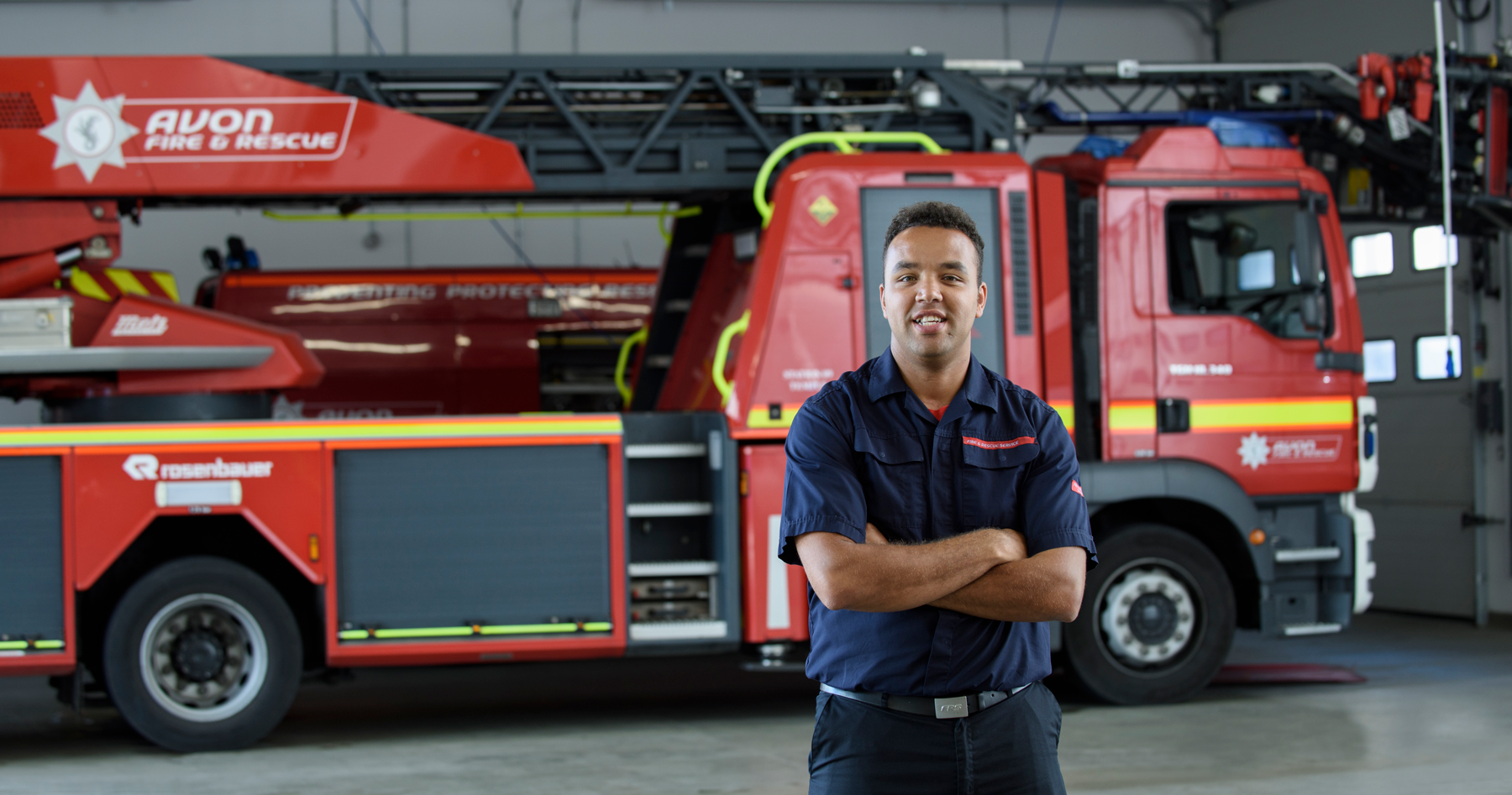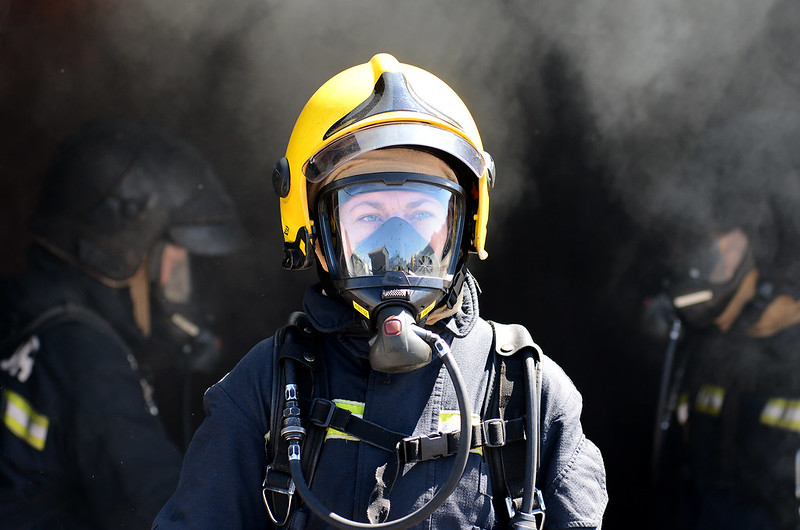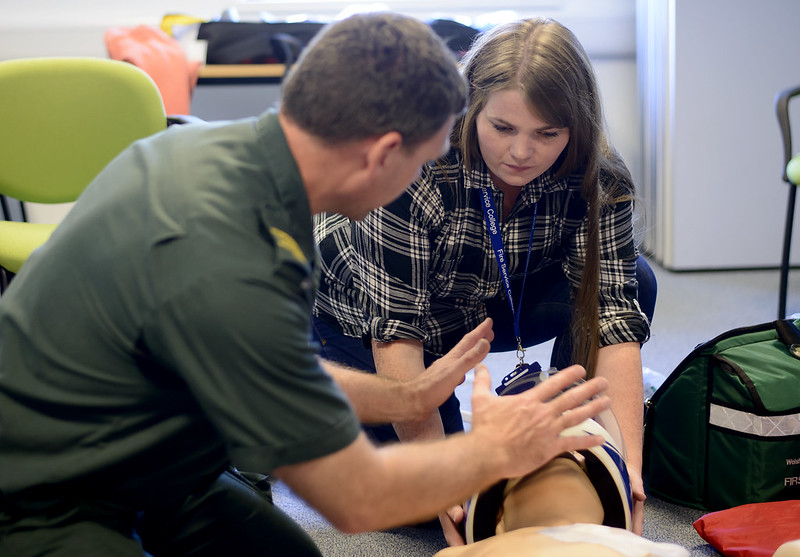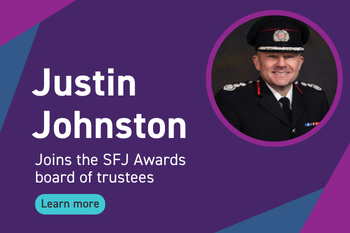Emergency services and responders play an integral part in keeping the public safe, even if it means risking their own lives. Our team at SFJ Awards supports the continual development of a highly skilled and sustainable emergency services workforce, particularly the contribution made by the UK’s Fire and Rescue Service. Firefighters, apprentices, trainees, and operational support staff have stepped up to support not just other emergency services throughout the pandemic, but more recently those that have traveled miles to help battle the devastating fires across many parts of Greece.
This September 9th, 2021, we come together to celebrate Emergency Services Day, and say thank you to the often-unsung heroes working across all emergency sectors, called upon to face new and difficult challenges.
From our firefighters to those who work tirelessly behind the scenes who are committed to raising awareness and ensuring the safety of everyone. It’s important to recognise the extent of what such a service and its staff offer because there’s so much more to them than many people know.
There are many different roles and departments within the Fire Service. Of course, there are the wonderful firefighters who respond to emergencies, but the Fire Service also provides education to the public in basic lifesaving skills and works with partner organisations like schools, youth offending, and community safety to promote responsible use of emergency services. Education and prevention teams are the backbone of the emergency services, as they are tasked with community outreach that involves spreading key messages whilst promoting public safety and best practice.
The Fire Service workforce, who come with a range of experience, learning, and qualifications, work within and alongside the community, to help reduce the number of fires that are started due to anti-social behaviour, and arson. The public is more likely to report such events and assist with any fire investigations if the fire service workers are present, visible, and supportive within communities.
Their commitment to the public helps to build a positive, inclusive image and for maximum impact, education and awareness are offered to both children and adults. Some local Fire Services also offer a range of community engagement training courses in order to reduce anti-social behaviour and help raise awareness of positive behaviour and attitudes towards community and public safety. This can include things like water safety, which can get people interested and involved with the skills and jobs undertaken within the fire and rescue sector. It can also encourage people to seek recruitment with the organisation in the future, in either a volunteer or on-call role or a permanent full-time firefighter role through fire qualifications or apprenticeships.
Recruitment to the Fire Service
Recruitment into Emergency Services is rigorous and consistent. That’s because workforce development ensures that all staff are trained to a high standard, and compliant. Fire and Rescue staff, on-call firefighters, fire apprentices, and volunteers are offered training opportunities to help them develop and progress within their roles. The recruitment depends on the role you apply for, for instance, if you want to become a firefighter, you need to be physically fit and may need a performance or fitness test, but if you wanted to work in control, you may be required to take other types of tests or assessments, and evidence of learning.
The Fire Service offers a range of careers within the service, along with many development and progression opportunities, by offering exemplary professional development/CPD.
The full-time firefighter is often part of a specific crew or watch, within a multi-skilled team. There are also firefighter apprenticeships available to help people train in the role, gain vocational qualifications, while also getting paid.
Valued and varied skills of a firefighter
It’s important to recognise that firefighters do much more than simply put out fires. They often attend road accidents with their cutting gear, and if a dangerous substance has been spilled on our roads, like petrol or diesel. In addition to this, firefighters and fire service staff also provide emergency first aid, CPR, and other forms of medical assistance if an ambulance or doctor has not yet arrived. They can also be involved in animal rescues and assist with flood emergencies too.
Some fire stations are full-time, while others are not. Full-time fire stations are fully staffed, 24 hours per day, 7 days per week but part-time fire stations are not and may only be used during specific hours, or in case of an on-call emergency, often dependent on the location and population of the area.
A full-time firefighter usually works on a shift basis with their designated watch. They attend the station during their working hours and complete any relevant tasks applicable to their role, but they are always ready in case of an emergency. Some firefighters do not have a specific watch and are used to cover sickness, injury, and holidays. It’s their job to respond to emergencies and save lives, as well as ensuring they provide advice to the public, and raise awareness within communities when it comes to fire safety. They are also responsible for checking and maintaining their kit! A part-time firefighter has the same or similar duties and responsibilities as a full-time firefighter, but they work fewer hours by prior arrangement.
An on-call firefighter’s role is different. They are trained to the same level as a full-time firefighter and are designated shifts, but they are not expected to attend the fire station unless there is an emergency or to provide cover upon arrangement. Their main role is to respond to emergencies, as and when required. The on-call firefighter is paid a flat rate for being on-call and must remain within a specific distance from the fire station during their shift period. If they are called in to cover an emergency and fulfill their firefighter duties, then they are paid in line with their contract. Recently, the Institute for Apprenticeships and Technical Education (IfATE) reviewed the Operational Firefighter Apprenticeship standard and made it possible for individuals to take the apprenticeship, to become a qualified firefighter, even if they only work reduced hours by being on-call firefighters.
How to volunteer for the Fire Service
Volunteering is a great way to train and build up experience within the Fire Service. Volunteers who work in Fire and Rescue are often asked to complete home fire safety checks, deliver and install fire or smoke alarms for people who are unable to do this themselves, and provide advice and guidance to the public. Their work is vital, as they often assist the most vulnerable and create a link between the Fire Services and the community. Sometimes, volunteers offer training to members of the public too, like fire awareness or CPR.
Individuals looking to support their local Fire Service through volunteering should contact the local station and find out what opportunities might be available. There are certain criteria your local fire service may be looking for, such as location to the station, age, health, and availability.
Volunteering is a great way to gain work experience in the fire and rescue sector and learn about future opportunities to join the Fire service on a more permanent basis, either through an apprenticeship, vocational qualifications, or open days for recruitment that fire stations often run.
With such varied roles and opportunities, you too could be part of something amazing as working for the Fire Service can help you achieve a lifelong career, within an essential, worthwhile service.
There’s no doubt that the Emergency Services play a pivotal role in keeping us safe every day. Let’s show them our support this Emergency Services Day as they are truly amazing!
SFJ Awards are proud to support several Fire and Rescue services throughout England, delivering important vocational qualifications, and apprenticeship End-Point assessment, to quality assure the knowledge, skills, and behaviours of the future emergency services workforce.
This Emergency Services Day, we want to say “Thank You” to the thousands of firefighters, support staff, apprentices, and volunteers who help to keep the public safe, well informed and build a better community for the future.
To hear more about SFJ Awards work with Fire and Rescue Services, sign-up for our e-bulletin, or follow @SFJAwards on Twitter and LinkedIn.
#999Day #EmergencyServicesDay







